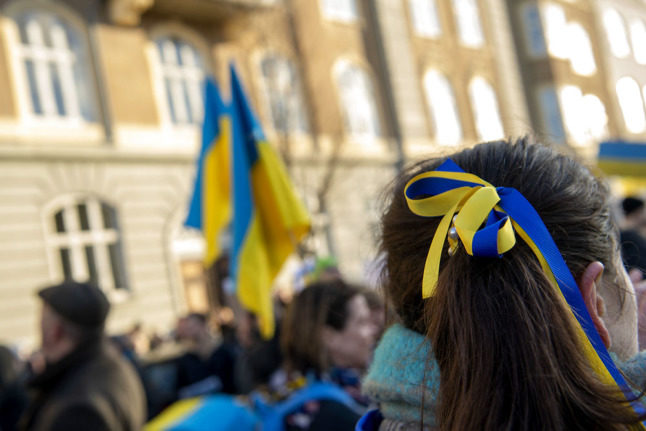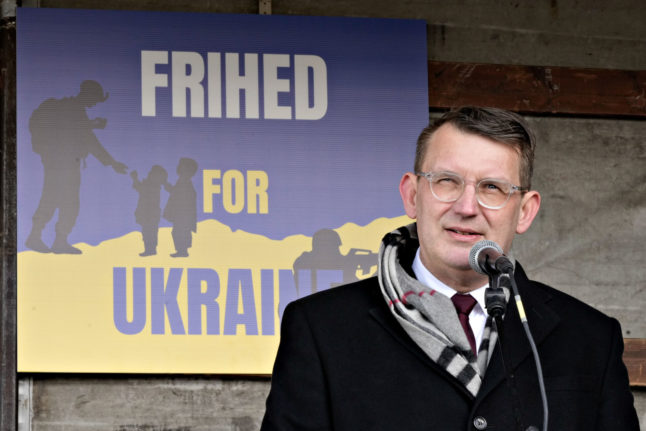As well as making arrangements to accommodate refugees from Ukraine, many municipalities have provided contact information for residents who want to offer a place to stay in their own homes for refugees.
Shortly after the Russian invasion of Ukraine began on February 24th, the Danish Immigration Service (Udlændingestyrelsen) wrote to the country’s 98 municipalities asking them to report back as to the extent to which they’d be able to take in refugees.
Many municipalities now have some level of provision in place having had some time to make arrangements.
Information can be found on municipality websites in many cases, and the local authorities can also be contacted directly by phone or email.
It should be noted that Ukrainian nationals are allowed to stay in Denmark for up to 90 days without a visa under existing immigration rules. Residence and work permit rules for Ukrainians are expected to change once a special law for Ukrainians displaced by the war has been passed by parliament.
READ ALSO: Danish government and industry agree on deal for Ukrainian work permits
Aabenraa Municipality, which is located close to the German border, said as early as February 28th that it would use a former care home as a temporary place of accommodation for refugees from Ukraine.
The facility, which has also been used as an asylum facility, has 17 separate apartments with their own bathroom and kitchen facilities and can house families.
The South Jutland municipality later stated it had set up a special email address for residents or businesses who wished to offer their assistance to refugees, including accommodation.
“We are experiencing a large demand from residents, associations and businesses who are ready to help in this unhappy situation. It is particularly offers to make homes or buildings available for Ukrainian refugees we receive,” a municipality official said in a March 1st press statement.
“For most of these requests, however, we are not the right authority. With the email address [email protected], we can collate questions and help to send the person who is asking to the right authority,” they said.
Other municipalities have similar arrangements in place whereby people interested in offering a space in their homes to refugees from Ukraine can contact their local authority.
Copenhagen Municipality has a page on its website dedicated to the Ukraine war, on which it says relevant links and information will be added on an ongoing basis.
That page does not, at the time of writing, include specific information regarding offering Ukrainians a place to stay at private homes, but the municipality in the capital has set up a hotline for questions related to the arrival of Ukrainian refugees – 33 66 30 12 – and an email address, [email protected].
In second city Aarhus, a similar information and resources page includes a direct link to a registration page (in Danish) on which Aarhus residents can let the municipality know they are interested in offering accommodation. The registration form asks for information on the type of home or accommodation being offered.
Odense Municipality meanwhile asks residents who wish to make a home available for Ukrainian refugees to contact them via 51 71 15 35 or [email protected].
“We will note your inquiry and you will be contacted if there is a need to make use of your home,” the municipality writes.
It’s not just the biggest cities or border areas providing this type of information.
Vejle Municipality, for example, states that it has “211 more or less ‘ready-to-move-in’ places for Ukrainian refugees”.
If you want to offer a place to stay – or you know Ukrainians who need a place to stay – in Vejle, you can contact the municipality on [email protected].
“We will contact you if there is any need for accommodation in private homes in Vejle Municipality,” the local authority states.
In general, residents in all Danish municipalities wishing to offer accommodation to Ukrainians can start by checking the website of their local municipality for information, and can also contact them directly with any inquiries.
READ ALSO: How can people in Denmark help Ukraine?



 Please whitelist us to continue reading.
Please whitelist us to continue reading.
Member comments